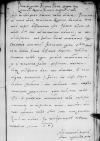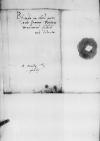Reverendo in Christo Patri, domino ⌊Ioanni episcopo Varmiensi⌋, fideli nostro dilecto
⌊Bona⌋ Dei gratia regina ⌊Poloniae⌋, magna dux ⌊Lituaniae⌋, ⌊Russiae⌋, ⌊Prussiae⌋, ⌊Mazoviae⌋ etc. domina
Reverende in Christo Pater, sincere nobis dilecte.
Pervenit ad aures nostras ⌊Nicolaum Koperni⌋, canonicum Warmiensem, nuper defunctum esse. Idcirco visum est nobis Sinceritati Tuae ad memoriam reducere, ut non obliviscatur, nos habere binas nominationes super canonicatus Warmienses. Hortamur igitur Sinceritatem Tuam, ut in locum huius defuncti ⌊Koperni⌋ nobilem Ioannem Wolski, vigore praedictae nominationis nostrae ex vi donationis habitae praesentare, instituere illique possessionem dare non omittat. Si vero aliquis praetenderet se habere ius aliquod super dictum canonicatum, iure mediante cum nostro nominato experiatur, quia molestum nobis esset, si quispiam nominationes nostras ausu suo temerario in despectum nostrum impedire deberet. Faciet nobis Sinceritas Tua rem gratam.
Quae bene valeat.
Ex ⌊Wielya Wyess⌋, octava Novembris anno 1543.
Ad mandatum proprium sacrae reginalis maiestatis

